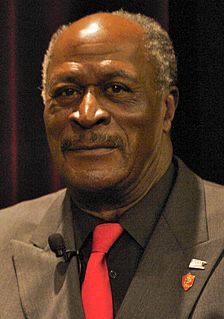A Quote by Winston Churchill
There is scarcely anything more important in the government of men than the exact - I will ever say pedantic - observance of the regular forms by which the guilt or innocence of accused persons is determined.
Related Quotes
It is more important that innocence be protected than it is that guilt be punished, for guilt and crimes are so frequent in this world that they cannot all be punished. But if innocence itself is brought to the bar and condemned, perhaps to die, then the citizen will say, "whether I do good or whether I do evil is immaterial, for innocence itself is no protection," and if such an idea as that were to take hold in the mind of the citizen that would be the end of security whatsoever.
Our civilization has decided that determining the guilt or innocence of men is a thing too important to be trusted to trained men. When it wants a library catalogued, or the solar system discovered, or any trifle of that kind, it uses up its specialists. But when it wishes anything done which is really serious, it collects twelve of the ordinary men standing round. The same thing was done, if I remember right, by the Founder of Christianity.
By the laws of rectitude accused Persons, however atrocious their offences, are allowed to make their defence, and by a verdict of a Jury of their Peers, they are either convicted, or acquitted. I have some times thought that we Women are hardly dealt by since strictly speaking, we cannot legally be tried by our Peers, for men are not our Peers, and yet upon their breath our guilt or innocence depends— thus are our privileges in this, as in many other respects tyrannically abridged, and we are forced to yield to necessity.
This is the most important thing I will ever say to you. The human mind is the ultimate testing device. You can take all the notes you want on the technical data, anything you forget you can look up again, but this must be engraved on your hearts in letters of fire. There is nothing, nothing, nothing, more important to me in the men and women I train than their absolute personal integrity. Whether you function as welders or inspectors, the laws of physics are implacable lie detectors. You may fool men. You will never fool metal. That’s all.
The innocence of those who grind the faces of the poor, but refrain from pinching the bottoms of their neighbour's wives! The innocence of Ford, the innocence of Rockefeller! The nineteenth century was the Age of Innocence--that sort of innocence. With the result that we're now almost ready to say that a man is seldom more innocently employed than when making love.
There are no moments more painful for a parent than those in which you contemplate your child's perfect innocence of some imminent pain, misfortune, or sorrow. That innocence (like every kind of innocence children have) is rooted in their trust of you, one that you will shortly be obliged to betray; whether it is fair or not, whether you can help it or not, you are always the ultimate guarantor or destroyer of that innocence.
He who asks fortune-tellers the future unwittingly forfeits an inner intimation of coming events that is a thousand times more exact than anything they may say. He is impelled by inertia, rather than curiosity, and nothing is more unlike the submissive apathy with which he hears his fate revealed than the alert dexterity with which the man of courage lays hands on the future.
The longer I live the more I realize the impact of attitude on life. Attitude, to me, is more important than facts. It is more important than the past, than education, than money, than circumstances, than failures, than successes, than what other people think or say or do. It is more important than appearance, giftedness or skill. It will make or break a company . . . a church . . . a home.
And yet we have what purports, or professes, or is claimed, to be a contract—the Constitution—made eighty years ago, by men who are now all dead, and who never had any power to bind us, but which (it is claimed) has nevertheless bound three generations of men, consisting of many millions, and which (it is claimed) will be binding upon all the millions that are to come; but which nobody ever signed, sealed, delivered, witnessed, or acknowledged; and which few persons, compared with the whole number that are claimed to be bound by it, have ever read, or even seen, or ever will read, or see.










































